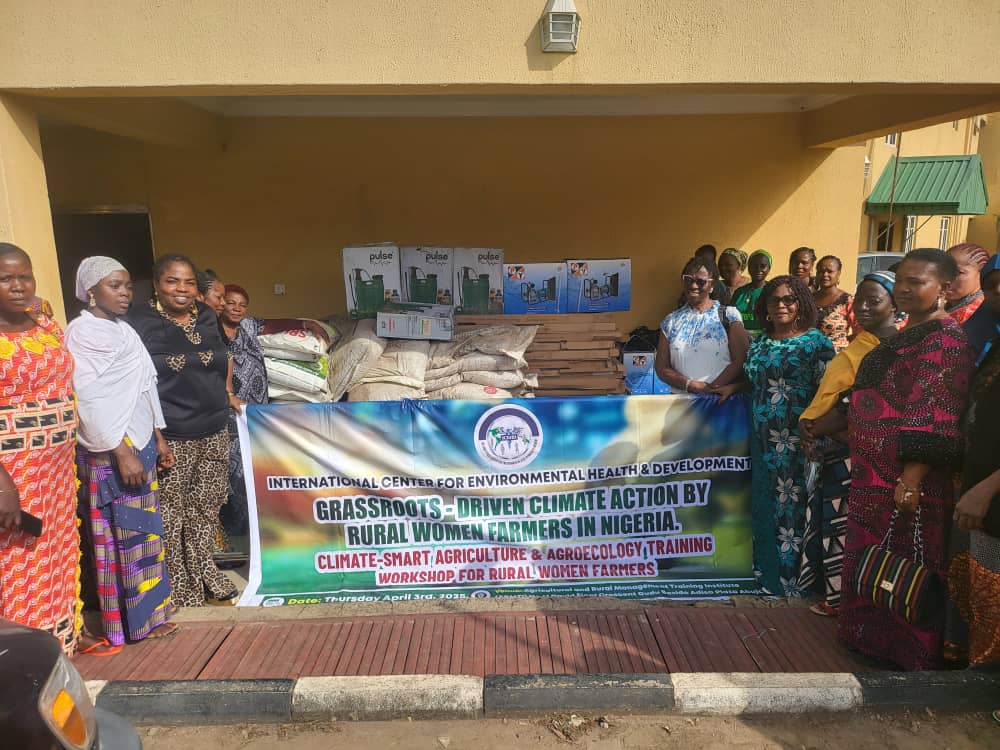In partnership with the African Women’s Development Fund (AWDF), the International Centre for Environmental Health and Development (ICEHD) has completed the first year of the Grassroots-Driven Climate Action by Rural Women Farmers Project in Abuja and the wider North-Central region of Nigeria.
This initiative set out to strengthen the resilience of rural women farmers by providing the knowledge, tools, and institutional support they need to adapt to climate change, increase productivity, and advance their economic empowerment.
What We Did in Year One
- Capacity Building
- Trained 101 rural women farmers in climate-smart agriculture and agroecology, covering soil conservation, organic composting, mulching, crop rotation, natural pest control, water-saving techniques, and weather forecasting.
- Farm Tools and Input Support
- Distributed essential farm tools and inputs including knapsack sprayers, solar-powered irrigation pumps, improved seedlings, organic fertilizers, and pesticides.
- Over 93% of women reported the tools significantly improved their farming practices and made production easier and more efficient.
- Climate Finance Access
- Facilitated access to climate finance and irrigation support, enabling 73% of women farmers to reduce production costs, adopt solar irrigation, and improve resilience during dry seasons.
- Advocacy and Leadership
- Women farmers participated in advocacy engagements with government institutions, leading to 7 documented stakeholder engagements with ministries, cooperatives, and community leaders.
- 10 new women-led agricultural cooperatives were formed, creating solidarity networks and amplifying women’s voices in agricultural decision-making.
The Impact in Numbers
At a Glance:
- 101 direct beneficiaries trained (with 33 indirect beneficiaries through peer-to-peer knowledge sharing).
- 85% adoption of new farming strategies such as organic composting, mulching, and water-efficient irrigation.
- Farm yields doubled: average production increased from 66 bags at baseline to 138 bags at endline.
- 20% increase in income: from ₦28,040 to ₦33,740 on average.
- Women’s leadership grew: participation in decision-making rose from 1.6% at baseline to 18% at endline.
- 73% accessed climate finance, helping them secure sustainable inputs and irrigation.
- 10 new cooperatives formed and 7 advocacy actions recorded.
Stronger Women, Stronger Communities
This first year has proven that when women farmers are given access to knowledge, resources, and supportive networks, their productivity and leadership thrive. Women are not only growing healthier crops and improving household incomes — they are shaping a more climate-resilient and equitable future for their communities.
As we move into Year Two, the project will expand its reach, deepen advocacy for gender-responsive agricultural policies, and scale climate-smart practices across more rural communities in Southwest (Lagos state), and Southeast (Enugu State).
Empowered women mean stronger families, healthier farms, and resilient communities.
